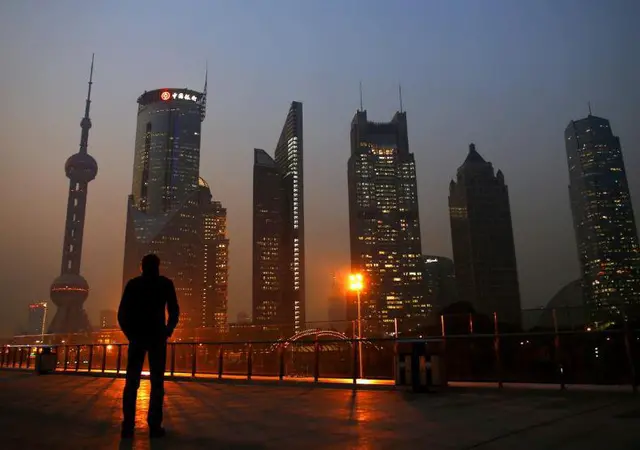Chinese authorities vowed Sunday to focus on quality and efficiency of economic growth in 2013, demonstrating their determination to ensure sustainable and healthy economic development after the previous pursuit of fast-track growth.
A statement issued after the closure of central economic work conference, which set the tone for economic policymaking next year, said "enhancing quality and efficiency of economic growth" will be a "central task."
**Unfavorable global environment **
The two-day conference offered a first glimpse into economic policies eyed by the new top leaders of the Communist Party of China, who decided to maintain a proactive fiscal policy and prudent monetary policy in 2013 as they expect global economy to maintain a low growth.
"The global economy has entered a period of profound transition and correction from a period of fast growth in the pre-crisis years," the statement said, warning of rising protectionism and increasing pressure from potential inflation and asset bubbles.
Easing measures, included the latest round of quantitative easing in the Unites States and monetary easing in other economies, have again pushed up global inflationary pressure.
Yao Jingyuan, a researcher from the Councilor's Office of the State Council, or China's cabinet, said the most prominent problem with the Chinese economy is no longer growth rate but its quality and efficiency, which will stay unsteady and unsustainable if these issues are not solved.
Due to flagging exports and domestic efforts to contain runaway property prices, China's annual economic growth slipped to 7.4 percent in the third quarter this year, slowing for seven quarters in a row.
**Expand domestic demand **
To boost quality growth, the statement said expanding domestic demand will be a strategic basis for China's development next year.
New growth points should be created in domestic consumption, which will serve as both a strong pulling power and foundation for the economy's sustained and healthy development, it said.
The country has been trying to restructure national economy to wean off its reliance on exports for growth, as its main trade partners like the European Union and the United States are embroiled in debt crisis.
The meeting especially attached significant importance to urbanization, which has been considered as a main driver for domestic demand and will be actively and steadily pushed forward in 2013, said the statement.
**Advance urbanization **
The country will center its efforts on improving the quality of urbanization, incorporating the concept of ecological civilization in the urbanization process to build intelligent, green and low-carbon cities, it said.
"Advancing urbanization will boost both investment and consumption, which plays a significant role in promoting China's sustained and steady growth," said Lian Ping, chief economist at the Bank of Communication.
The country's urban population, which outnumbered that of rural areas for the first time at the end of last year, is expected to account for 70 percent of the total population by 2030, according to a World Bank forecast.
To improve people's well-being, the statement said the country will work to boost employment, reinforce social security networks, and step up construction of low-income housing and renovation of run-down areas.
Official data showed China created 10.24 million new jobs in urban areas in the first nine months of the year, exceeding the annual target of 9 million for this year.
**Further control property market **
China will continue its property market control policies next year, the statement said.
Stubbornly high real estate prices have been a significant source of public complaint in recent years, forcing the government to implement a string of policies like bans on third-home purchases and property tax trials to keep prices down.
However, the property market has shown warming signs in recent months, after the central bank earlier this year twice cut interest rates and banks' reserve requirement ratio to buoy the economy.
While seeking growth impetus from consumption, China will also look to boosting investment. The statement said the country will encourage both private and public investment on infrastructure projects that will not cause repetitive construction to set foundations for long-term growth.
China has earlier this year opened a number of state-run sectors such as transport and finance to private investors in a bid to increase the economy's efficiency.
Aware of industry overcapacity, the statement called for industrial restructuring through means like innovations and branding to maintain high-quality development.
The statement said the country will stabilize and increase its share of world markets while boosting imports to support the country's economic restructuring and make its international payment more balanced.
Official data showed exports slowed more than expected in November. In the first 11 months, foreign trade grew 5.8 percent year on year, well below the government target of 10 percent for this year.
The meeting has also agreed that China will "properly expand the amount of social financing to maintain a moderate increase in loan issuances" and keep the yuan's exchange rate "basically stable" next year, according to the statement.
While vowing to fully deepen economic reforms and opening-up, the meeting called for "greater political courage and wisdom" to carry out reforms.
In-depth research and studies should be done to improve the top-level design and general plan for the reforms, and a clear overall scheme, road map and timetable should be made, the statement said.
Most economists have been putting their forecasts for China's 2012 growth under 8 percent but slightly above the 7.5-percent government target set in March.
Latest figures showed that the country's industrial output has continued to pick up, and retail sales and fixed-asset investment have maintained strong growth.
 简体中文
简体中文







